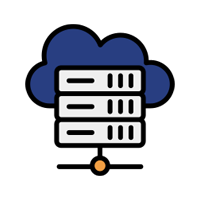Top 5 Requirements For Choosing Endpoint Data Backup

Endpoint data often remains an overlooked component within an enterprise’s data protection strategy. The content residing on laptops and desktops represents some of a company’s most valuable data. Safeguarding this data is crucial to securing critical company information and aligning with your overall data protection strategy. To fortify your organisation’s endpoint systems, implementing a solution for endpoint data protection is important.
The selection of the most suitable endpoint data protection solution for your environment necessitates a thorough evaluation of the objectives you aim to accomplish. This buyer’s guide emphasises key factors to choosing endpoint backup.
- Automated Backup: Implementing a robust endpoint backup solution not only safeguards critical data but also plays a pivotal role in enhancing end-user productivity. With automated and continuous backup processes, end-users can focus on their tasks without the burden of manual backup responsibilities. In the event of data loss due to hardware failures, accidental deletions, or system crashes, efficient recovery processes offered by endpoint backup solutions empower users to quickly restore their critical files and configurations, minimising downtime. The user-friendly interfaces of these solutions contribute to a positive experience, allowing employees to easily initiate backups, check the status of their data protection, and independently recover their files when needed.
- Simplify Administrative Processes: Administrative processes play a pivotal role in the seamless operation of endpoint data backup. Minimising administrative time and cost is a priority for employees given limited training, staffing, and budget resources. Select an enterprise endpoint data solution that integrates your data protection requirements. By protecting and managing everything in a single solution, you can minimise administrative burden and infrastructure complexity without the use of separate solutions and multiple management consoles.
- Seamless Integration with Endpoint Devices: Compatibility with different operating systems, such as Windows and macOS is essential to provide a uniform data protection strategy across the entire organisation. Integration should extend beyond device compatibility to cover various user scenarios, including remote work and on-the-go access. Look for solutions that support automatic backups over both, local and remote networks, ensuring that data is consistently protected regardless of the user’s location. Additionally, the ability to perform backups without causing disruptions to users’ daily activities is a key consideration for a seamless integration experience.
- Ensuring Scalability and Flexibility: As organisations grow, so does the volume of data generated on endpoint devices. Choose an endpoint backup solution that can scale seamlessly, accommodating the increasing storage needs of growing enterprises. Flexibility in endpoint backup is also necessary to meet the diverse needs of different departments and teams within an organisation. Customisable backup policies enable IT administrators to tailor strategies, adjusting backup schedules, retention periods, and other parameters based on specific requirements. This flexibility ensures that the endpoint backup solution aligns with the unique workflows and data usage patterns across the organisation, providing a versatile and adaptive approach to data protection.
- Security and Compliance: Endpoint devices are often the entry point for cyber threats, making security a top priority for endpoint data backup and recovery solutions. Look for solutions that incorporate robust security measures, including end-to-end encryption, multi-factor authentication, and secure transmission protocols. These features help safeguard data, both, during the backup process and when it’s stored in the backup repository.
Additionally, compliance with industry regulations and data protection standards is non-negotiable. Ensure that the chosen solution aligns with data privacy regulations applicable to your industry and region. A data protection solution that prioritises security and compliance not only protect the organisation from potential legal issues but also instills confidence in customers and stakeholders regarding the responsible handling of sensitive information.
In conclusion, choosing the right endpoint backup solution is a strategic decision that directly impacts an organisation’s ability to safeguard its valuable data assets. By considering comprehensive data protection with seamless integration, efficient processes, scalability and flexibility, and robust security and compliance features, organisations can ensure that their chosen solution meets the evolving demands of the digital landscape. Endpoint data protection is the key to a comprehensive data management solution to safeguard your critical company information.
As part of the single-platform software solution, Yotta Safe delivers efficient, centralised endpoint data protection and management. It streamlines operations to cut down on costs and risks while enhancing productivity throughout the enterprise via innovative self-service features. The solution supports all major operating systems reducing risks by protecting data from human error, malware, ransomware, and theft. The associated plans provide flexibility of deployment and adoption across entire organization, no matter the size, distribution, or sophistication of the environment.
Related Blogs




















